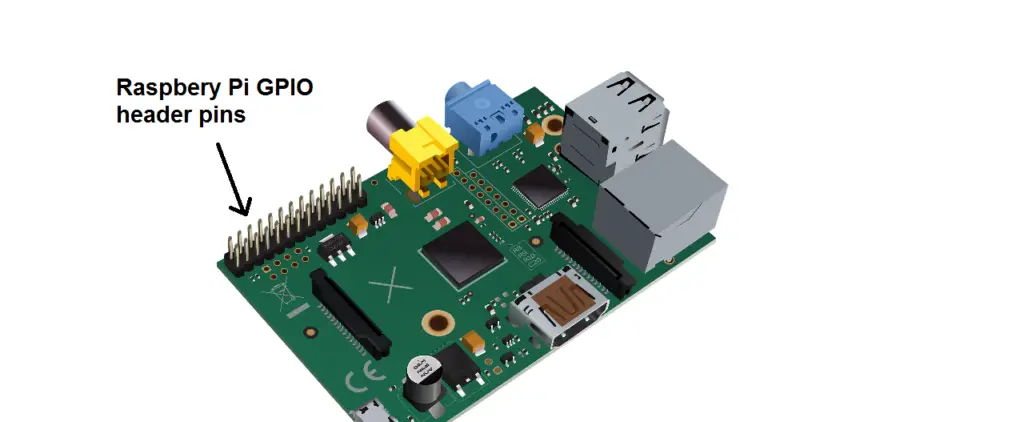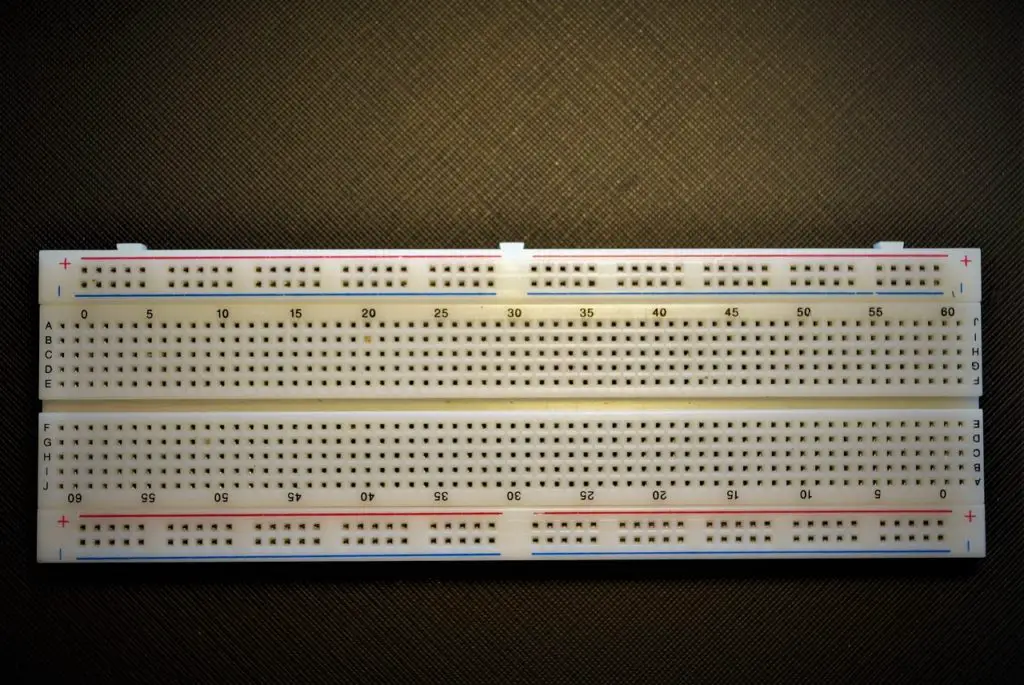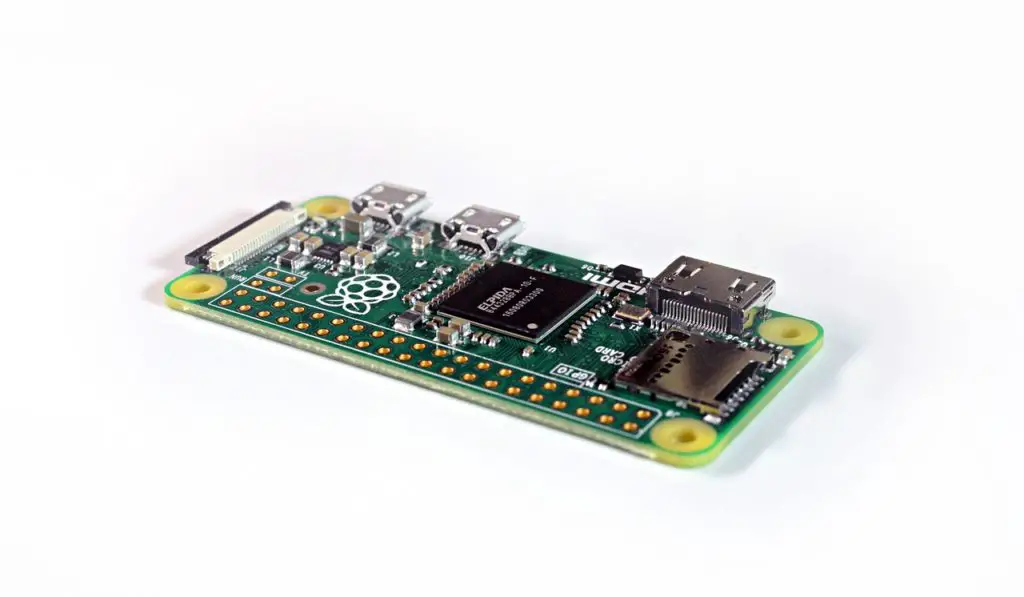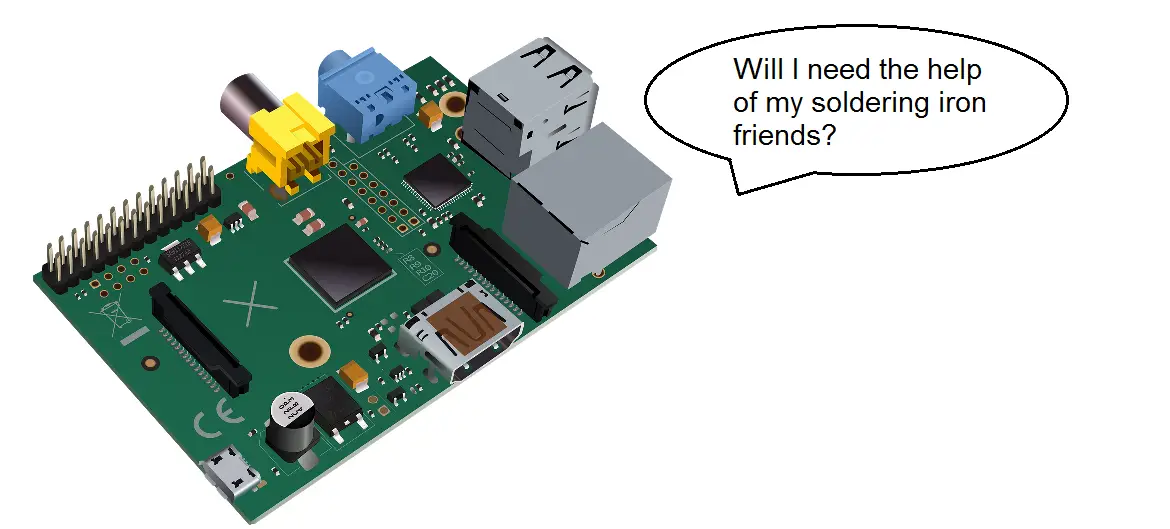The Raspberry Pi is a development board that can fit in the palm of your hand.
But, do not be fooled by its size, this little board has the same capabilities of a desktop computer.
A raspberry pi is essentially a small sized computer that you can connect to a computer monitor/ Television screen and operate it using a standard mouse and keyboard.
It is a great way to learn about the world of computing, as well as programming using languages such as Scratch and Python.
This board comes ready to use not requiring much physical setup.
But, do you need a soldering iron for a raspberry pi?
No, you do not need a soldering for a raspberry pi. When starting out using the raspberry pi for simple projects that do not require a lot of inputs or outputs, you will not need a soldering iron. Also, you can set up circuits on a breadboard which again does not require a soldering iron.
However, there are certain instances when you might need a soldering iron as well as the skill of soldering.
If you are using the Raspberry Pi Zero or Zero W, these two types of boards will require a soldering iron. As well as when your projects get a bit more advanced and include more inputs/outputs like buttons, lights, sensors etc.
Reasons why you do not need a soldering iron for a raspberry pi
If you are just starting out on your journey with the raspberry pi, you might have plenty of questions and concerns as to what you need.
One of those questions is if you need a soldering iron.
Here are a couple of reasons why you will not need a soldering iron if you are just starting out with a raspberry pi.
Reason #1 why you do not need a soldering iron for a raspberry pi: No physical setup required
If you have ever had the misfortune of having to assemble something when you buy it, like a dining table, or computer desk, you know how frustrating it can be.
It may look like an easy process, but it never goes as planned.
The less you have to do for setting up the better!
Lucky for you and me, if you have just acquired a Raspberry Pi, there isn’t any physical setup required.
This means that you will not need a soldering iron when you first unbox your raspberry pi before using it.
All components and header pins are already soldered.
However, the raspberry pi does require some software setup. But, this is a less annoying process than having to solder.
Reason #2 why you do not need a soldering iron for a raspberry pi: Less complex projects
We all have to learn to crawl before we walk.
I’m sure you have heard this many times before.
Whether you are learning how to skateboard, play the guitar or program a raspberry pi, learning the fundamentals is key to building a solid foundation.
When you start out with the raspberry pi, the projects that you will be learning will mostly be software based and will not require many inputs/outputs.
Therefore you will not need a soldering iron in the early stages of learning and creating with the raspberry pi.
Connecting components to a raspberry pi without a soldering iron
What if you get to the stage where you need to connect some inputs and outputs so you can interface with the outside world?
Will you need a soldering iron then?
No, even if you do need interface inputs and outputs to the raspberry pi you will not need a soldering iron.
The raspberry pi has 40 dedicated General Purpose Input Output (GPIO) header pins where electronic inputs and outputs can be connected to without the need of a soldering iron.

Connecting electronic components to the raspberry will require a few other things;
- Breadboard
- Female-Male jumper wires.
Breadboard – a breadboard is a tool used to help set up temporary circuits during the prototyping phase of your project.
Electronic components, inputs, outputs etc, can be connected to the breadboard without the need of a soldering iron.

Female-Male jumper wires – You will need a way to connect the raspberry pi GPIO pins to the breadboard. Since the header pins are male, you will need a female to male jumper wire.
When you might need a soldering iron for a raspberry pi
While you can get away with no using a soldering iron in the early stages of using a raspberry pi, there will come a time when you will need one.
As you get better, the projects you will undertake with your raspberry pi are going to get a bit more complex requiring many more wires, components, inputs and outputs.
Also, using a breadboard is good for prototyping initial ideas but, if you need to create more permanent fixtures, the breadboard is not really ideal.
So, there is a point in time when a soldering iron might come in handy.
Below are some possible scenarios where you will need a soldering iron when using a raspberry pi.
Scenario #1 when you might need a soldering iron for your raspberry pi: Soldering wires to components
As mentioned earlier, as you advance in skill, the projects you undertake are going to get a bit more complex and require a variety of electronic components.
While some of these components can be placed onto a breadboard without any hassle, there are going to be certain inputs and outputs that will have terminals that are a bit too big for the breadboard.
To combat this, wires will need to be soldered to their terminals to make it easier to connect to the breadboard.
Sure you could twist the wire, but from experience this can get quite annoying as a permanent electrical bond is not created.
Also, you might need to extend some sensors, or buttons away from the breadboard which will require soldering on longer wires.
So opt for soldering them.
Scenario #2 when you might need a soldering iron for your raspberry pi: Permanent stable setup
Say you are designing a project that has a lot of motion. The raspberry pi and other circuitry are going to undergo some forces.
These forces could cause connections to come loose when they are set up on a breadboard (as the breadboard is designed more for temporary setups).
To avoid this, you will need a more permanent stable setup.
A Stripboard (or veroboard), is a premade circuit board with copper tracks where you can set up a more stable circuit.
You will need a soldering iron to solder components onto the veroboard.
Which type of raspberry pi might need a soldering iron
When it comes to the raspberry pi, you are not limited to one board.
Over the years the company has developed many different boards that vary in speed, weight, memory, Inputs/Outputs, networking and more.
Each type of raspberry pi will have its own advantages for different applications. So choosing the right raspberry pi comes down to the application as well your skill level.
The Raspberry Pi Model A and B are the boards you will typically use when you start out so you won’t need a soldering iron as you can set up circuits using its pre-soldered header pins and a breadboard.
However, there are two models of the raspberry pi that will require a soldering iron.They are the Raspberry Pi Zero and the Raspberry Pi Zero W models.

This is because they do not come pre-soldered with header pins.
So, header pins will have to be soldered onto them.
Do you need an expensive soldering iron for a raspberry pi?
So, you can get away with not using a soldering iron when starting out.
However, as you saw above there are certain scenarios where the soldering iron can lend a helping hand.
But, do you need an expensive soldering iron?
No, you will not need an expensive soldering when using a raspberry pi as there isn’t a lot of soldering involved.
Saying that, I wouldn’t recommend buying the cheapest soldering iron you get your hands on. Cheap soldering irons do not provide an even heat source to melt solder.
There are soldering irons which bridge the gap between quality and price which will a better option.
Final thoughts
I hope this article shed some light on whether you need a soldering iron for a raspberry pi.
- If you are starting out your journey with the raspberry pi, you will not need a soldering iron as you can set up circuits using a breadboard, and jumper wires.
- When you advance in your skill, and your projects get a bit more complex, a soldering iron will come in handy especially when you need a more permanent stable circuit setup.
- Also, the Raspberry Pi Zero and Raspberry Pi Zero W will need a soldering iron as its header pins do not come soldered.
- You do not need an expensive soldering iron.





